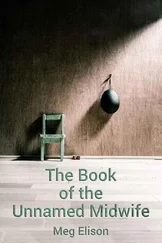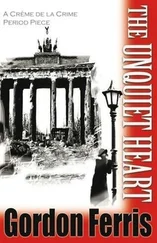“Shut up!”
— the folk mass and evensong—
“SHUT UP! SHUT UP!!”
— the great words repeated in the dark and over the heads of newborns and the bodies of the dead. Indulgent, happy to compromise, eager to see it all in a different light, in a finer and more noble and prettier light, the best light of man, the beacon and the hope. But that’s just food—
“Food!” he cried aloud.
— just food. The verdict arrives in doses, century after century, and looks increasingly grim. The world is too old. The soul is the mind is the brain is the body. I am you and you are it and it will always win.
He laid out before him his morning’s work. He uncapped his pen and folded back the legal pad to a clean sheet and began to write. Outside, the sun was baking the world. He didn’t like his new office or the view that came with it and assumed they gave it to him to keep him out of sight from clients who might notice the bottles of prescription medication on his desk, or his missing fingers. One hand, with thumb and pinkie still intact, was fixed in a permanent expression of hang loose, dude; the other, with only the middle and ring fingers, looked like a roadside cactus. As for the medication, he had no choice in the matter: they refused to give him a desk with drawers. These systematic downgrades, which he suffered after every leave of absence, were humiliating. He usually forgot about them once he was lost in the writing. To be lost in the writing was to be absorbed, and to be absorbed was to lose awareness of everything — the shitty view and the third-class furniture, but also, and here was the paradox, even the contentment. To be lost in the writing was to be happy, but it required giving up any awareness of that happiness, of any awareness whatsoever, and so he was blissfully unaware — until the secretary came by and in calling him to awareness made him unhappy again.
“I don’t need anything right now, thank you,” he said. He made a kind of karate chop over the desk with his hang-loose hand. He couldn’t look her in the eye, he was so annoyed. “I’ll let you know if I do. Thank you.”
She departed. He was given ten minutes of peace and quiet and then, sure enough, she reappeared. He had once argued during a partner caucus that secretaries were relics of an earlier era. You wanted something done right, you asked a paralegal to do it. Secretaries should be phased out. But too many partners treasured and coddled their secretaries, so he had to continue to suffer their anxious interruptions, their quivering attempts to justify their salaries. He realized he was going to have to give her something to do.
“May I have some coffee?” he asked. “Can you just bring me a cup of coffee?”
She had anticipated him. Her name was Ella, and she was coarse with premature age. He did not think, with those knees, she should be wearing a skirt. She began to pour the coffee into a cup on his desk. The coffee steamed upward and, almost against his will, he was momentarily grateful. It was a nice thing to have, a fresh cup of coffee, even in the summer. Never something to take for granted. As she poured, he pulled out his wallet with his cactus hand and using the middle and ring fingers removed a hundred-dollar bill, which he pressed into her free hand. She looked at the crumpled bill.
“What’s this for?”
“An hour,” he said. “An hour to work in peace, no interruptions, no inquiries. Surf the Internet, take a long lunch, talk to your kid on the phone. Whatever — for one hour.”
She pocketed the hundred. “Sure,” she said. “I’ll surf the Internet.” She shambled away.
Glare penetrated the window as cars went by. Semis with heavy loads rattled the plate glass. He kept his head down and slowly worked himself, word by word, back into communion with the other hours, days, years — there was in fact no name for this particular unit of time — that together formed a continuum of unawareness that was as close to transcendence as he would come. He was working himself, as if with a spade in a tunnel that finally yields to light, out of the physical world. Rested, at ease, contented by the coffee, the other had no complaints. He would get hungry soon, but with cunning, careful focus, Tim might have another hour to himself.
But before that hour was out, someone knocked gently on one corner of the desk. It was a visitor, and he had not had a visitor in a long time.
“Hi, Tim.”
Fritz’s tie was loosely knotted and his sleeves rolled up. He had dragged in with him a measure of the heat. “May I sit down?” he asked.
“Fritz?” He began to collect the work laid out before him into tidy piles. “Did we have an appointment? What the hell time was our appointment?”
Fritz climbed in across from him. “We didn’t have an appointment,” he said.
“Well, that’s okay, hell. I’m just writing a brief. When I’m not being interrupted.”
“Am I interrupting?”
“No, no, it’s not you.”
“Do you know what you want?”
“Not now,” he told the secretary.
“Just some coffee,” said Fritz.
Tim’s hands returned to fussing with the loose-leaf paper. His eyes refused to meet Fritz’s. Fritz noticed his missing fingers.
“Now’s as good a time as ever,” he said. “So where are we?”
Fritz looked up from his friend’s hands. He hadn’t known what to expect, but it wasn’t this. “Where are we?” he asked.
“With the man. What progress?”
Fritz looked at him. “Nobody’s seen you for months, Tim,” he said. “We’ve been worried about you.”
“Busy, you know.”
“It took me a long time to find you.”
He stopped fussing with his papers and sat up straight. “Now, look. We’ve been after this guy and after this guy, and while you guys are supposed to be the best, you still haven’t found him. And every day we don’t find him is another day an innocent man wastes away in that jail cell of his.”
“R. H. Hobbs is dead, Tim.”
The woman reappeared. Fritz turned his coffee mug over and set it right side up on the lacy paper doily. “Thank you,” he said, and the woman departed.
“Do you know how long I’ve been petitioning to have secretaries phased out of this firm?” he said to Fritz. “What do they do? They fetch coffee. That’s it. You want something done, you ask a paralegal. The only thing a secretary can do is fetch coffee, because fetching coffee is beneath a paralegal.”
“Tim,” said Fritz, “did you hear me? R. H. Hobbs is dead.”
“No, he’s not.”
“He hanged himself in December.”
“When did he get out?”
“Out?”
“Of prison. When did he get out of prison?”
“He was serving a life sentence—”
“I know what his goddamn sentence was, goddamn it,” he said. “I know what he was serving.”
His raised voice caught the attention of the two truckers sitting at the counter. Ella stood across from them, smoking and staring. One of the truckers turned and said something.
“I’m asking a simple question,” said Tim. “When did he get out?”
“I’m afraid he didn’t get out,” said Fritz.
Tim remembered sitting on the sofa watching TV with Becka when R.H.’s trial began. He was unable to leave the house for some reason. Why was that? He couldn’t recall. Uninterrupted doses of Buffy, like an IV drip, kept the guilt at bay. After he went into remission, he went to see R.H. in prison. He sat across from him and noticed the gray hair on his arms. He had never really seen him until that day, an aging man in a prison jumpsuit.
“What about the man?”
“What man?”
“The man. The man, Fritz, who I saw on the bridge. And at the baths. At the baths, too, when he attacked me. Where are you with him?”
Читать дальше












